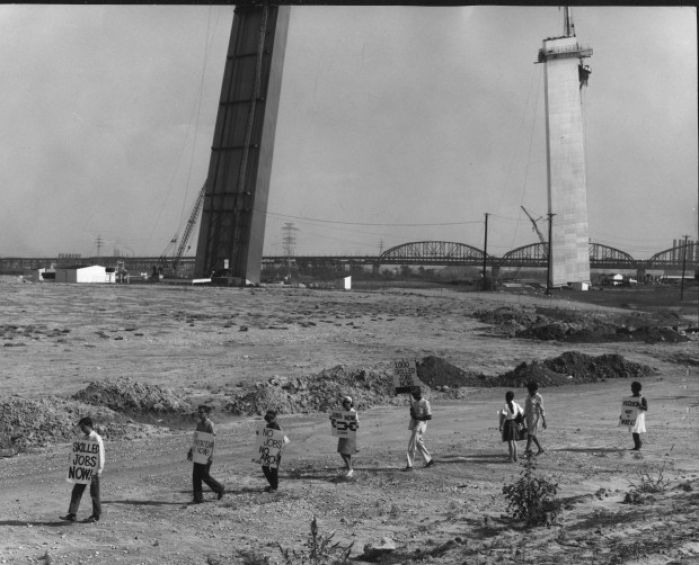
In truth, because of the nature of the work to be done, almost all city planning is concerned with relatively small and specific acts done here and done there, in specific streets, neighborhoods and districts.
Jane Jacobs
Most buildings can be understood in terms of power and authority — as efforts to assume, extend, resist or accommodate it.
Camille Wells
This (crash?) course examines how political power manifests itself in the physicality of space: buildings, neighborhoods, public spaces, entire cities and metropolitan regions. This is the architecture behind architecture – social determinants, official acts of government and micro-political decisions on the neighborhood level. The central questions of the course: How does political power produce the built environment? Who has access to that political power? Who really designs the city, besides the architects and planners that get official credit?
To find answers, we will be examining public policy, urban planning, social history, official acts of commemoration, architectural practice, and historic preservation. We will read two primary texts that provide both local and national context, while supplementing that reading with topical excerpts and articles. Primarily, this course will rely on field investigation. Each session has a field component to illuminate themes of our inquiry. We will explore the political tactics and achievements of official, state-sanctioned urban renewal practice (the Gateway Arch/Downtown St. Louis); the rise of the American suburb (O’Fallon Park/ Ferguson/New Town); and the politics of unofficial urban renewal through grassroots revitalization strategies (Cherokee Street, Marine Villa & Gravois Park/Old North St. Louis).
This course is interdisciplinary; we will combine methodologies of political science, urban history, architectural history and urban planning. The pace of our work will be brisk due to the short schedule. Readings will provide the background for short in-class discussions but primarily for understanding the landscapes we visit in the field. [AMCS 401]
